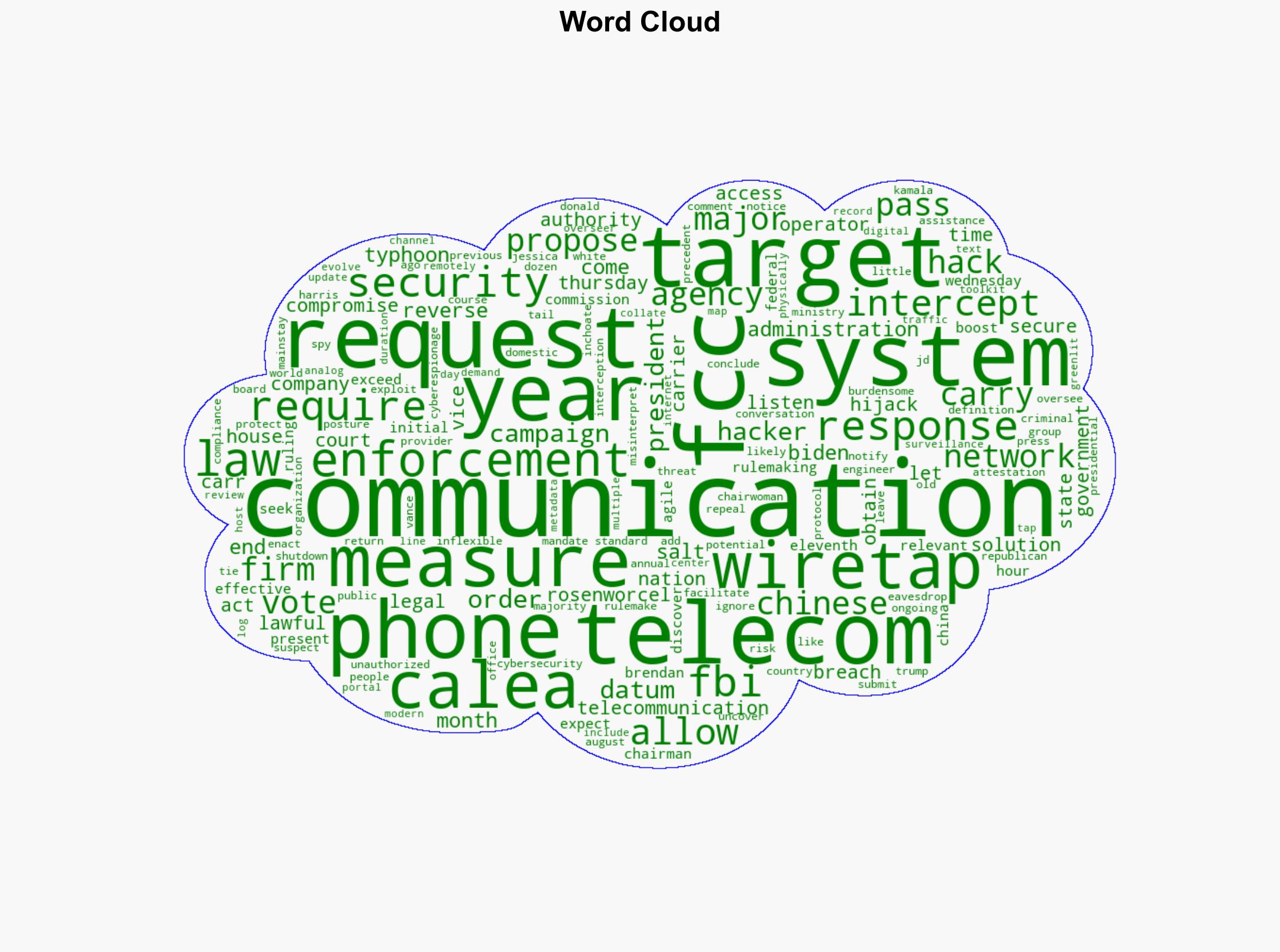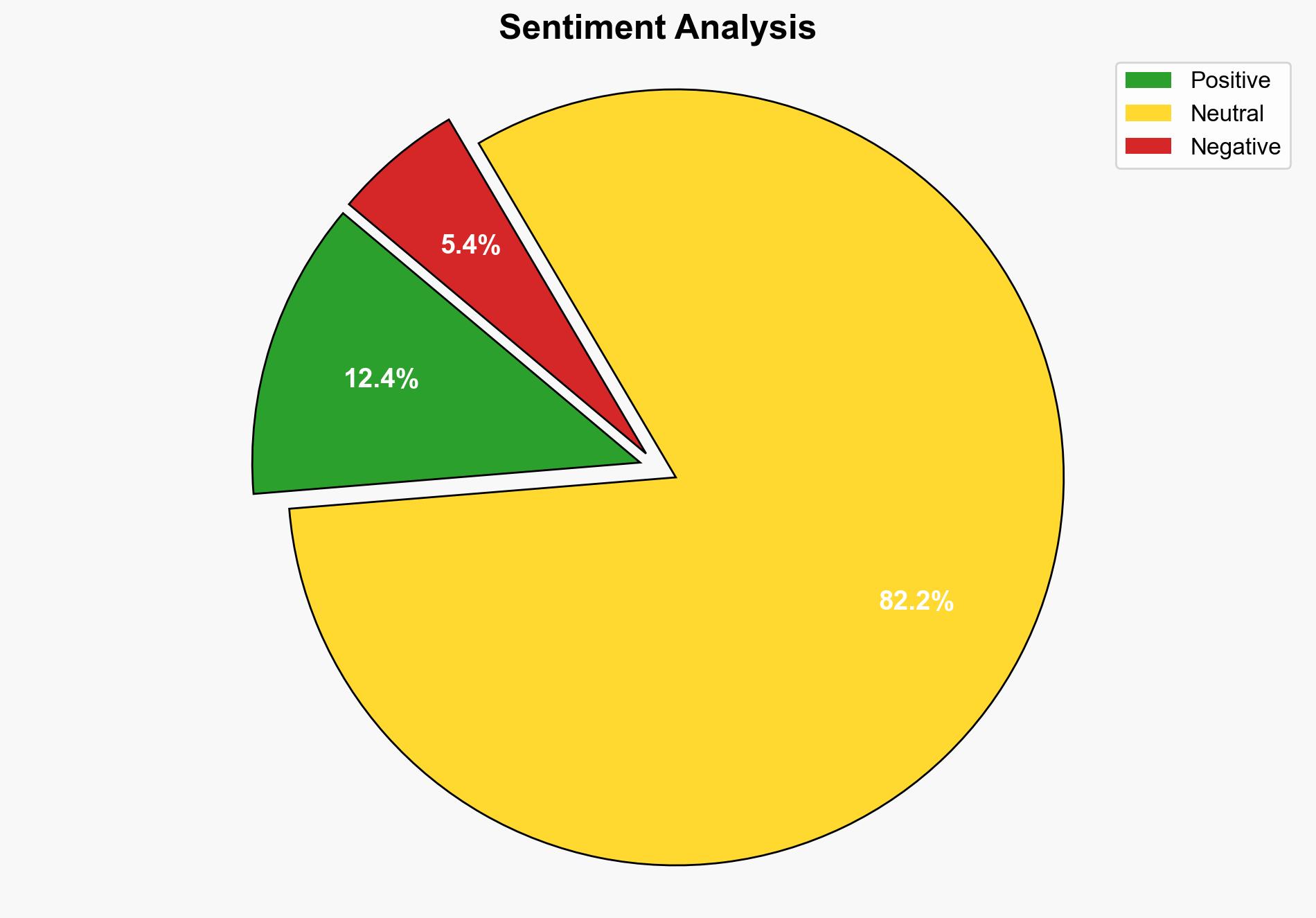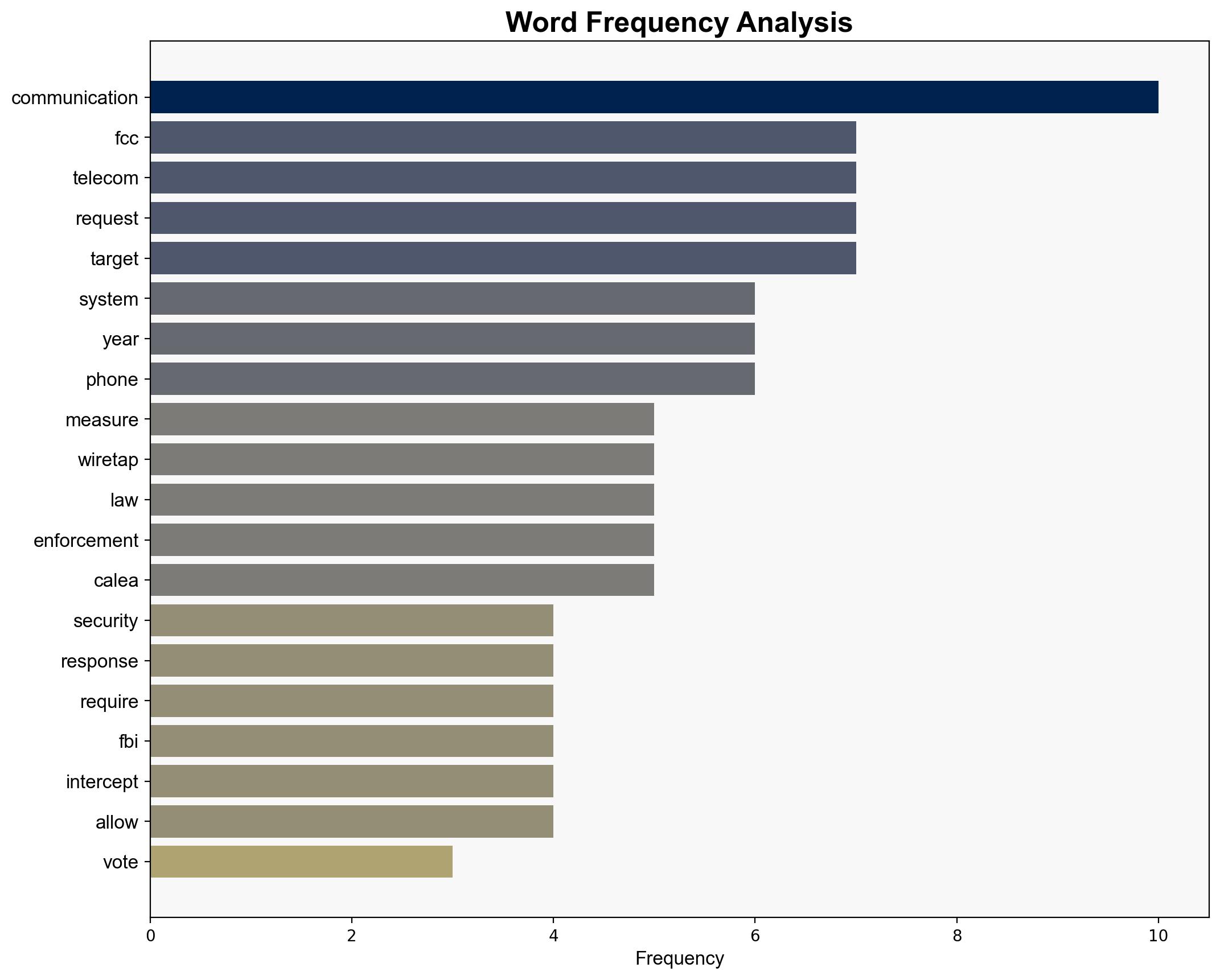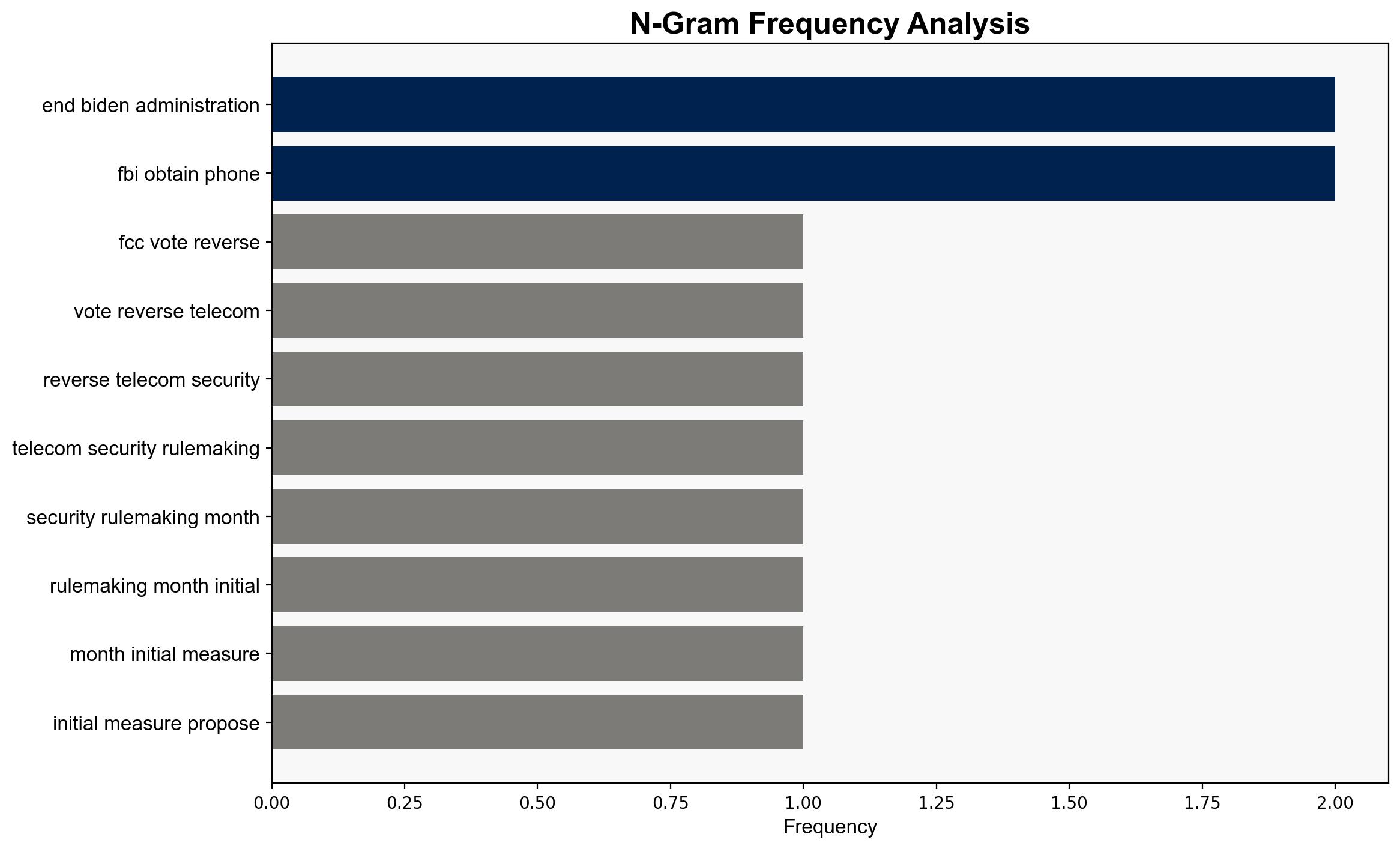FCC to vote on reversing telecom security rulemakings next month – Nextgov
Published on: 2025-10-31
Intelligence Report: FCC to vote on reversing telecom security rulemakings next month – Nextgov
1. BLUF (Bottom Line Up Front)
The Federal Communications Commission (FCC) is poised to vote on reversing telecom security rulemakings, initially enacted in response to cyber threats from China. The most supported hypothesis is that the reversal is driven by a belief that the original measures overextend FCC authority and impose undue burdens on telecom providers. Confidence level: Moderate. Recommended action: Engage stakeholders to assess the impact of potential regulatory changes on national security and industry compliance.
2. Competing Hypotheses
1. **Hypothesis A**: The FCC’s decision to reverse the rulemakings is primarily motivated by concerns over regulatory overreach and the burden on telecom companies, as articulated by Brendan Carr.
2. **Hypothesis B**: The reversal is influenced by political dynamics within the FCC and broader government, potentially undermining cybersecurity in favor of economic considerations.
Using ACH 2.0, Hypothesis A is better supported by the explicit statements from FCC officials and the historical context of regulatory debates. Hypothesis B lacks direct evidence but remains plausible given the political nature of FCC decisions.
3. Key Assumptions and Red Flags
– **Assumptions**: Hypothesis A assumes that regulatory burden is a primary concern for the FCC. Hypothesis B assumes political influence is significant in decision-making.
– **Red Flags**: Lack of detailed cybersecurity impact assessments in the discussion. Potential bias in FCC statements favoring deregulation.
– **Blind Spots**: The long-term cybersecurity implications of the reversal are not fully explored.
4. Implications and Strategic Risks
Reversing the rulemakings could weaken cybersecurity defenses against state-sponsored cyber threats, particularly from China. This may lead to increased vulnerability of U.S. telecommunications infrastructure. Economically, the decision may reduce compliance costs for telecom firms but could escalate geopolitical tensions if perceived as a reduction in cybersecurity posture.
5. Recommendations and Outlook
- Conduct a comprehensive risk assessment of the proposed regulatory changes on national security.
- Engage with cybersecurity experts to evaluate alternative measures that balance security and regulatory burden.
- Scenario Projections:
- Best Case: Regulatory changes enhance flexibility without compromising security.
- Worst Case: Reversal leads to significant security breaches, damaging national interests.
- Most Likely: Partial rollback with increased scrutiny on compliance and security measures.
6. Key Individuals and Entities
– Brendan Carr
– Jessica Rosenworcel
– Salt Typhoon (Chinese cyberespionage group)
– Federal Communications Commission (FCC)
– FBI
7. Thematic Tags
national security threats, cybersecurity, counter-terrorism, regional focus




